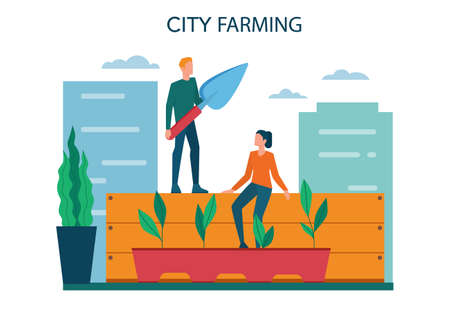Celebrating Diversity: The Essence of Indian Festivals
India is a land where every month welcomes a new festival, filling streets with joy, colours, and the sounds of celebration. From the sparkling lights of Diwali to the soulful prayers of Eid, from the midnight carols of Christmas to the harvest feasts of Pongal and the rhythmic beats of Durga Puja, each festival reflects the country’s motto: “Unity in Diversity.” These occasions are not just holidays—they are living reminders of India’s rich cultural heritage and its spirit of togetherness.
Across states, languages, and religions, festivals in India act as bridges that connect people beyond their everyday differences. Whether you are lighting diyas in Mumbai, breaking your Ramadan fast with friends in Hyderabad, or joining a Christmas mass in Goa, you become part of a larger family that celebrates and respects every tradition. Each festival has its unique rituals and flavours—like exchanging sweets during Diwali, sharing biryani on Eid, or preparing payasam for Pongal—but all share a common thread: they bring families together and encourage communities to pause, reflect, and recharge their bonds.
This vibrant mosaic of celebrations is not just about rituals; it is also about learning empathy and inclusivity from an early age. Children grow up experiencing Holi’s colours alongside their neighbours’ Eid or Christmas gatherings, learning first-hand the values of respect and acceptance. For many Indians, these shared moments become cherished memories, reminding us that while our backgrounds may differ, our hearts beat together when it comes to celebrating life’s joys. In today’s fast-paced world, Indian festivals offer essential moments to slow down, spend quality time with loved ones, and reconnect with one’s roots—proving once again that our diversity is our greatest strength.
2. Public Holidays in India: More Than Just a Day Off
In India, public holidays are not merely opportunities for time off work or school—they are powerful occasions that unite the country’s diverse communities and reinforce shared values. These holidays, whether national or regional, offer essential moments to pause, reflect, and celebrate togetherness. National holidays such as Independence Day and Republic Day are observed by all Indians, regardless of language, religion, or region. On these days, streets come alive with flag hoisting ceremonies, patriotic songs, and cultural programs that remind everyone of the country’s journey and collective spirit. At the same time, state-specific observances like Pongal in Tamil Nadu or Bihu in Assam highlight India’s incredible diversity and allow communities to express their unique traditions while enjoying much-needed respite from daily routines.
How Public Holidays Bind Communities Together
Public holidays function as social glue, helping individuals reconnect with family and friends. They foster a sense of belonging by providing common ground—whether through shared meals, community events, or simply taking time to rest and recharge. For many working professionals and students alike, these breaks from routine play a crucial role in maintaining mental well-being and work-life balance.
Key National and Regional Holidays
| Holiday Name | Type | Main Observances |
|---|---|---|
| Independence Day (15 August) | National | Flag hoisting, cultural events, parades |
| Republic Day (26 January) | National | Parade in Delhi, flag ceremonies nationwide |
| Pongal | Regional (Tamil Nadu) | Harvest celebrations, traditional cooking |
| Bihu | Regional (Assam) | Dancing, feasting, community gatherings |
The Importance of Taking a Break
In today’s fast-paced world, Indian public holidays serve as reminders to slow down and cherish moments with loved ones. Whether it’s gathering for a special meal on Diwali or participating in Republic Day parades, these occasions create lasting memories and reinforce the importance of balance between work and personal life. By honouring both national milestones and local customs, Indians across the country find ways to recharge—together.

3. Family Bonding Through Tradition
In India, festivals and holidays are much more than just days off from work or school—they are powerful opportunities for families to come together, reconnect, and strengthen the bonds that hold generations close. During these special occasions, households across the country bustle with activity as everyone—from grandparents to little ones—joins in preparing for celebrations. The act of gathering to share festive meals, such as biryani during Eid, sweets like laddoos during Diwali, or traditional dishes on Pongal, creates cherished memories and a sense of belonging that transcends daily routines.
These moments go beyond food and festivities; they serve as vital touchpoints for passing down cultural values, stories, and rituals. Parents and elders often take this time to explain the significance behind each festival—why we light diyas during Diwali, why we tie rakhis on Raksha Bandhan, or the importance of sharing during Christmas. Such practices ensure that younger generations remain connected to their roots while understanding the diverse beliefs that coexist in Indian society.
Through rituals like pujas at home, singing folk songs, decorating with rangoli, or even simply sitting together after a meal and reminiscing about childhood memories, families nurture emotional intimacy and mutual respect. These shared experiences foster empathy, patience, and inclusivity—qualities essential for harmony in a multicultural nation like India. Ultimately, Indian festivals and holidays are not just a celebration of faith or tradition; they are a reaffirmation of family unity and collective resilience in an ever-changing world.
4. The Modern Juggle: Balancing Work and Festive Commitments
India’s festivals are vibrant and deeply rooted in tradition, but the modern professional or student faces unique hurdles when trying to honour these cultural celebrations while fulfilling workplace or academic duties. As offices and schools rarely pause for every festival—especially in metropolitan cities—the challenge of balancing multiple roles becomes acute during the festive season.
The Double Burden: Expectations at Home and Work
During major festivals like Diwali, Eid, or Christmas, families expect full participation in rituals, family gatherings, and community events. At the same time, deadlines at work or assignments in school do not take a holiday. This dual expectation can lead to stress and guilt for those who feel they are falling short either at home or in their professional commitments.
Common Challenges Faced
| Challenge | Description |
|---|---|
| Time Management | Juggling long working hours or study schedules with extended family gatherings and rituals. |
| Leave Policies | Limited festive leave, especially in private sector jobs, often forces employees to choose between important festivals and work obligations. |
| Social Pressures | Expectations from elders and relatives to be present for all functions, sometimes clashing with critical office meetings or exams. |
| Mental Fatigue | The effort of switching between professional persona and personal/festive roles can be mentally exhausting. |
Navigating the Tightrope: Some Realities
Many working professionals, especially women, face the additional burden of managing festive preparations along with their jobs. Students preparing for board exams often miss out on key festivities. Furthermore, with increasing nuclear families in urban India, there is less support system available to share responsibilities. The pressure to “do it all” is real, and often leads to burnout during what should be a joyful season.
Cultural Sensitivity in Workplaces & Schools
Progressive organisations are beginning to adopt flexible leave policies and remote work options during major festivals. Schools too are slowly recognising the importance of allowing students space for family traditions. However, much remains to be done to ensure that both productivity and cultural heritage are respected equally—something that requires empathy from employers, educators, and families alike.
5. Wellness and Recharging: Festivals as Self-Care
In the heart of India’s vibrant cultural calendar, festivals are far more than just rituals or celebrations—they are powerful avenues for emotional wellness and self-care. Amidst the demands of fast-paced urban life, academic competition, and professional responsibilities, Indian festivals like Diwali, Eid, Holi, and Pongal offer much-needed pauses that allow families and communities to come together in meaningful ways.
The Emotional Recharge of Festive Gatherings
Participating in these festivals provides a unique form of emotional recharge. The simple act of preparing traditional sweets with family, lighting lamps together, or exchanging heartfelt greetings creates positive energy that uplifts spirits. For many Indians, such moments strengthen bonds not only within immediate families but also across generations and neighbourhoods. These shared experiences foster a sense of belonging—a vital counterbalance to feelings of isolation or stress prevalent in modern city life.
Stress Relief through Rituals and Togetherness
The rituals associated with Indian festivals—be it applying vibrant gulal during Holi or joining hands for aarti at Navratri—encourage mindfulness and presence. They provide an opportunity to disconnect from digital distractions and reconnect with loved ones on a deeper level. The collective laughter during festive games or the calm focus of prayer acts as natural stress relief mechanisms, reminding everyone to slow down and savour the moment.
Cultural Identity as a Source of Strength
For Indians living abroad or those juggling multicultural identities, participating in traditional festivals reinforces cultural roots and identity. This connection is especially crucial for younger generations growing up in globalised environments. By celebrating their heritage together, families help children appreciate their background, instilling confidence and resilience to face the pressures of everyday life.
The Joy of Giving Back
Many Indian festivals emphasise charity and community service—such as distributing food during Eid or donating clothes at Diwali—which adds another layer of fulfilment. Acts of kindness foster empathy, gratitude, and collective wellbeing, further enhancing the holistic benefits that festivals bring to individuals and society alike.
Ultimately, Indian festivals are more than annual events; they serve as essential self-care rituals woven into the fabric of life. By offering emotional support, stress relief, and a profound sense of belonging, these celebrations empower people to navigate the complexities of modern life while staying grounded in values that promote wellness for all.
6. Evolving Traditions: Adapting Celebrations in Today’s World
India’s festivals and holidays have always reflected the heart of family life, community spirit, and cultural richness. However, as our nation urbanises rapidly and digital technologies become part of everyday living, the way we celebrate is changing too. Today, Indian families—whether in bustling cities like Mumbai or smaller towns—are adapting their age-old traditions to fit modern realities, ensuring that celebrations remain meaningful while embracing new practices.
Urbanisation: Shifting Lifestyles and Spaces
With more Indians moving to urban centres for education and work, traditional joint family setups are giving way to nuclear families. This shift has influenced how festivals are celebrated. Space constraints in city apartments have led to more intimate gatherings, with immediate family rather than large extended groups. Yet, the essence of togetherness persists—families find creative ways to share festive joy, often collaborating with neighbours or local communities in apartment complexes to recreate the vibrant atmosphere of their hometowns.
Digital Advancements: Virtual Connections and Social Media Celebrations
The rise of smartphones and high-speed internet has transformed holiday gatherings. Many families now celebrate festivals like Diwali, Eid, or Christmas over video calls when loved ones are abroad or in distant cities. WhatsApp groups buzz with festival wishes and photos, while Instagram reels showcase rangoli designs or festive recipes. Technology bridges distances—allowing grandparents in Kerala to watch their grandchildren burst crackers in Delhi or participate in a virtual Lakshmi puja. While some worry about losing the “personal touch,” others see digital tools as a way to include everyone, no matter where they are.
Global Influences: Blending Traditions for a Modern India
Exposure to global cultures has inspired Indian families to blend international customs with their own traditions. Christmas trees stand next to diyas during December; Halloween-inspired costume parties follow Navratri garba nights. Children return from school with new ideas for eco-friendly Ganesha idols or sustainable Holi colours—reflecting an awareness that goes beyond borders yet stays rooted in Indian values of respect and unity. This fusion makes celebrations more inclusive and relevant for today’s youth.
Eco-Friendly Rituals: Mindful Celebrations for Tomorrow
The growing environmental consciousness among Indians is reshaping how we observe rituals. From community-led clean-up drives after Ganesh Chaturthi immersions to using biodegradable décor during Durga Puja, there is a visible shift towards sustainability. Schools and resident welfare associations actively promote green practices, encouraging families to opt for natural materials and minimal waste. Such mindful adaptations ensure that festivals continue to uplift without harming the environment—honouring both tradition and responsibility.
As India strides confidently into the future, our festivals evolve alongside us—balancing the wisdom of the past with the demands of present-day life. Whether through virtual reunions, eco-conscious celebrations, or multicultural blends, Indian families prove that tradition can thrive by adapting—making every holiday an opportunity to recharge together and keep our bonds strong across generations.

